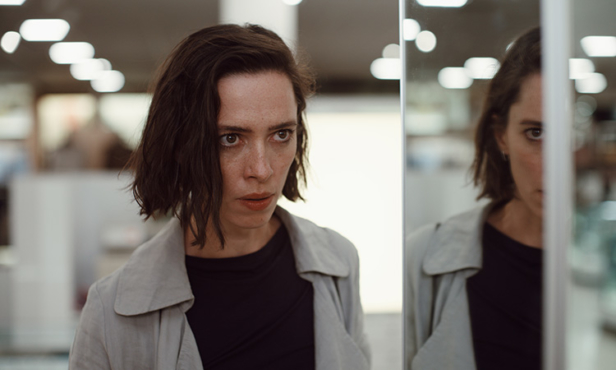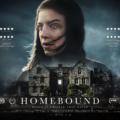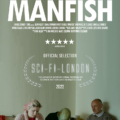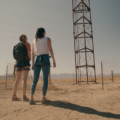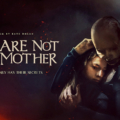Upcoming psychological horror movie, Resurrection tells the story of Margaret (Rebecca Hall), who seems to have her life in order. She is capable, disciplined, and successful, and soon, her teenage daughter, who Margaret raised by herself, will be going off to a fine university.
Everything is under control until David (Tim Roth), a mysterious man from when she was young, returns to her life. David is carrying with him the horrors of Margaret’s past which threaten to unravel her carefully constructed life. But what is their shared past and how can they recover from it?
We take a look behind the scenes of Resurrection with its writer and director Andrew Semans, who tells us how he used his fears to create the movie…
When did you first get the idea for Resurrection?
I was trying to hatch an idea for a screenplay and I was looking for something that interested me. An exercise that I often do to try and conjure up ideas is I will just dwell on fears that I have. Think about the persistent elemental fears that I carry around with me all the time. Often when I focus on a particular fear for long enough, something will come out of it. Some idea, some notion, some character.
I was attempting this exercise, and I began to think quite a bit about fears around parenting. I was not a parent at the time and I’m still not (I will be in about five weeks), but parental fears, specifically the fear that your children will be vulnerable, you’ll be unable to keep them safe, that you’ll fail in your fundamental duty as a parent and your child will be hurt or victimised in some way.
Thinking about those fears, I began to think about the parental revenge sub-genre of movies. It’s very popular, movies like Taken or Deathwish. These are movies that trade on these basic fears around parenting and provide these grandiose fantasies of how a seemingly normal parent can somehow be transformed into some kind of unstoppable avenger on behalf of their imperiled child. Just through the sheer force of their love, they become superheroes.
Right around the same time, a good friend [was in a relationship with] a very, very toxic, manipulative man. I was witnessing that relationship firsthand and it was very frightening. I was doing my best to understand the nature of that relationship and the psychology behind that relationship to help my friend and help her try and get out of it. I became very frightened and very fascinated by the psychology of abuse, the psychology of both victim and victimiser and how abusers form these incredibly potent, tragic bonds with their victims.
As I researched that and came to understand that a little bit more, it began influencing the script in a very, very big way. All of those things converged [for] Resurrection.
What was your writing process on Resurrection once you had that initial idea?
For the first draft, I wanted to give myself complete permission to write whatever I felt like writing and just let it pour out and then see what I had.
I wanted to write it as unconsciously as possible, giving myself permission to follow whatever impulses came to mind and try not to police myself too much in terms of structure and just see where it took me.
The idea was that I would come back and see what I had and interrogate it, and try and fill in the holes and structure it in such a way that made it more palatable, more intelligible and just have a stronger three-act structure. So I wanted to just go for it!
The main character of Margaret was [there] initially, and although the way she ended up does not resemble my mother at all, she was initially inspired by my own mother whose name is Margaret. There were certain tendencies I noticed in my mum that I accessed and expanded upon in this character. Now, my mother has experienced and done absolutely nothing that is portrayed in this movie, but the character initially, the inspiration was my mum. I won’t go further in describing that because my mum might read this!
Margaret is very complex, did you and Rebecca Hall work on that character very much?
The script did not change barely at all once Rebecca was involved; she responded to the script very readily. She understood the character completely, instinctively, and honestly. It was remarkable how little conversation she required, how little direction she required. She knew the script better than I did and knew what to do, and how to play it.
It became very apparent very early on that I just needed to get out of her way because she had a complete handle on this. The more I would talk to her, the more I’d just fuck it up [haha]. So it was truly amazing how she just signed on, and she knew precisely what to do.
Rebecca is a very, very smart, very sophisticated person and actor and prepares meticulously. She is a director’s dream!
How did you build up the tension in the movie and ensure you didn’t give everything away too early?
I have no idea! Haha. You work on the script, you write multiple drafts, you hope it works in the script and you hope you’re doling out information just enough to keep people interested, but not so much that they get ahead of the movie. And hopefully the tension is built into the scenes and built into the structure of the script and then you get on set and try and stay true to what you’ve written and hope the actors execute on a high level.
You just try and identify the key emotion in what you’re trying to convey, what you want the audience to feel and just use that as your guiding light. And hopefully, you can draw it out and make it work as best as possible on a craft level. And pray!
What is it about genre that appeals to you as a filmmaker?
I’m just a fearful and neurotic person! Life is very much dominated by fear. It’s a constant companion and it’s something I’m always trying to understand within myself and something I’m trying to manage and control. So it’s a very common theme. For me, I’m interested in telling psychological stories. Horror films and thrillers tend to have a more direct line to the unconscious. I feel like the unconscious mind is a very, very chaotic and scary place and horror films present this arena of permission and free-play to engage with unconscious fears in an often very direct or very messy way that feels somehow more attuned to how the unconscious mind works.
All of our unconscious’ are a very, very scary, contradictory, overwhelming, chaotic place. And, I feel like horror movies find a way to engage with that very frankly, in ways that it feels like it has to be much more mediated in other genres.
What do you want audiences to take away from Resurrection?
It’s an ambiguous ending. It isn’t entirely clear what is meant to be happening and that is very much on purpose. It’s up to them to take away what they find most stimulating and satisfying.
Hopefully, any interpretation of the ending and the final moments – be it a tragic interpretation or if you see it as a happy ending – feels earned. That there feels like there’s an emotional catharsis and that it is narratively satisfying, in spite of its ambiguity.
Luckily, many – if not most – audience members seem to have had that experience and they’ve walked away from the movie feeling that the ambiguous ending is a provocative and stimulating one. That it’s worth talking about and is something that does feel dramatically, emotionally and intellectually earned.
The danger of an ambiguous ending is sometimes it can feel cheap. Sometimes it can feel arbitrary and you don’t want to do that. You want to feel an ambiguous ending where it’s exciting and provocative and you want to talk about it and you want to engage with the themes of the movie and what that ending might suggest about those things. But it’s tricky. It’s dangerous.
There will always be those who are frustrated with an ending like ours. And that’s fine too!
Resurrection was seen at Sundance Film Festival: London 2022. It will be available on digital on 5 December.
